Culture
now browsing by category
Supreme Law Contradictions
Op-Ed: Dr. Gaffar Peang-Meth
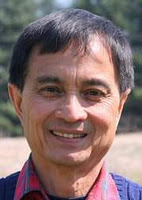 Last month, I engaged in an extensive interview by email, responding to questions from Russian journalist Stephan Jarinsky. The convergence of developing responses to those questions and the recent death of a longtime friend with whom I collaborated when fighting Vietnamese occupation of Cambodia in the 1980s caused me to be particularly reflective.
Last month, I engaged in an extensive interview by email, responding to questions from Russian journalist Stephan Jarinsky. The convergence of developing responses to those questions and the recent death of a longtime friend with whom I collaborated when fighting Vietnamese occupation of Cambodia in the 1980s caused me to be particularly reflective.
One question that I found intriguing was Mr. Jarinsky’s inquiry about how to describe modern day Cambodia’s regime. I chose Cambodia’s Constitution, adopted in Phnom Penh in 1993, as a point of discussion. The contrast between the promises described in the governing document and the execution of governmental functions by an autocratic and unaccountable regime could not be more stark. I spent more than a decade of my life trying to install a democratic regime in Cambodia. Countless friends and brave combatants were lost in that struggle. What we “won” was a government based on a Constitution that was the foundation for hope.
Article 1 says, “Cambodia is a Kingdom with a King who shall rule according to the Constitution and to the principles of liberal democracy and pluralism.” Article 8 makes the King “a symbol of unity and eternity of the nation”; the “guarantor of national independence, sovereignty, and territorial integrity,” “the protector of rights and freedoms of all citizens and the guarantor of international treaties”; and Article 9 assigns the King the “august role of arbitrator to ensure the faithful execution of public powers.” Today the King is a virtual prisoner in the royal palace compound, reminded ominously by the regime in power that his security cannot be guaranteed if he ventures into his country.
https://www.youtube.com/watch?
Article 31 states, “The Kingdom of Cambodia shall recognize and respect human rights as stipulated in the United Nations Charter, the Universal Declaration of Human Rights, the covenants and conventions related to human rights, women’s and children’s rights.” Article 32 states: “Every Khmer citizen shall have the right to life, personal freedom and security”; Article 38, “The law guarantees there shall be no physical abuse against any individual. The law shall protect life, honor, and dignity of the citizens . . .” These rights are not enforced. Thousands have been forcibly evicted from their lands so that the property may be sold or leased to foreign entities that have paid officials for the privilege. Citizens have been beaten and jailed for civil protests, have had their ballots negated. Neither the security of person or property is assured.
https://www.youtube.com/watch?
https://www.youtube.com/watch?
An old friend of mine wrote four decades ago about a false choice between the killing fields of Pol Pot and the new killing fields that were created by Vietnamese invading troops that installed the current regime and by the corrupt regime that has endured. My friend referred to that false choice as being caught between the plague and cholera.
https://www.youtube.com/watch?
Article 150 says, “This Constitution shall be the Supreme law of the Kingdom of Cambodia.” Perhaps one day it shall be. But today it is not.
Gaffar Peang-Meth, Ph.D., is retired from the University of Guam where he taught political science for 13 years. He can be contacted at peangmeth@gmail.com.
Discussion on Teenagers in Politics of Campro
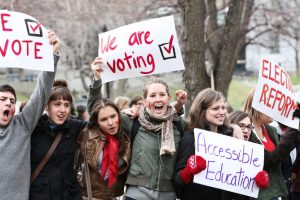
McGill students film their vote mob video for the 2011 federal election on campus. Apr 14 2011
Dear Esteemed Members,
I have tremendously learned from this discussion. Observing since my teen to present adulthood, the static of influencing the youth and framing on their future shape is remained intact. Hence, the current exit passage of the youth through new mean of social media shall result in a disorganized outcome.
1. Recalling my teen, i was influenced by parents, school teachers, community elders and political figures. My single mother encouraged me to work hard on school while she discouraged me from involvement with politics or social issues. Seeing with her own eyes of bitter social upheaval, she randomly warned me of don’t talk what you see, don’t say what you want, and she told to grow Ko tree and sesame plant to keep blind eyes and mute mouth with all political issues. At school, i was taught to use guns, to disassemble and assemble guns, and teachers instructed about crimes of Pol Pot, Kiev Samphan, and Ieng Sari, the teachers boasted confidently without any interruption on the political ideology of Max-Leninism in classrooms. At community, i was bullied by adults in a daily basis. Like i wrote in previous email, beside of instructing to use different tricks of zero sum game to overcome rivals, those adults repeated the phrase of “don’t teach all knowledge to your students because those students could topple you at the end”. I highly praised Premier Hun Sen through his speech played on public loud speakers about negotiations with Prince Norodom Sihanouk at the time.
2. I am remained disappointed to the popular proverb of “young bamboo shoots shall take turn from old bamboos” or “unity is power” while the mechanisms to make them happen are not designed or incentivized to design. Parenting lessons are not taught to students, to pedagogical courses, and to parents. Political system is vastly patron-clientalism in which has placed the learned and the merits-based culture at the marginalized spot. The national institution has not been established and often been ruined by the embedded cult of god-king. The present emerge of youth participation in politics is not regulated. It has been disincentivized by the institution.
3. The world and civilized states are embracing modern “growth mindset” while Cambodia is strongly seen in attaching to “fixed mindset”. When growth mindset praised someone on their efforts, accepting individual limitation, and to give up or sacrifice power as suitable time arrived, Cambodians are praising those with light skin with luxurious commodity and longed power status, or they are not been reluctant to admire their good Kamma accumulated in past life so that they could enjoy it at the present time without obstruction etc. Instead of saying “keep on trying with this work”, Cambodian teachers might say “you are very smart” to their students.
4. According to figures by international researches, Cambodia has been well off in building up fat body but paralyzing citizenship’s mind. For instance, ADB praised 7 digits of annual growth and sometime named Cambodia as “tiger” but corruption and freedom of speech which are vibrant cells of blood and mind have been gradually paralyzed and inflicted adding on to the existing traumas. Youths are believed becoming byproducts of these paralyzing and inflicting machine.
Buddha taught “all things are interconnected and inseparable (Pathiccasammudphatha)” as Nama (mind) and Rupa (body) are inseparable component of LIFE.
CNRP has full potential to impact positive change for Cambodia
ជាការពិតណាស់ នយោបាយអហឹង្សធម៍និងការប្រើប្រាស់បញ្ញាជាអាវុធ រមែងមិនបង្ហាញរូបភាពខ្លួនជាសាធារណៈទេ តែវាមានជាវិជ្ជមាននៅគ្រប់ស្រទាប់អ្នកស្រឡាញ់យុត្តិធម៍ បញ្ញវន្ត និងយុវជនជំនាន់ថ្មី។ ជាការបញ្ជាក់នូវបំរែបំរួលជានិច្ចនៃបរិបទនយោបាយខ្មែរ សំលែងជិត៥០ភាគរយដែលគណបក្សសង្គ្រោះជាតិមាន ត្រូវប្រើបាស់អោយបានជាប្រយោជន៏នូវគ្រប់លទ្ធភាពទាំងអស់។ ជាក់ស្តែង តំណាងរាស្រ្តត្រូវបន្តទិតៀនដើម្បីស្ថាបនាដល់ទង្វើមិនសមរម្យរបស់បក្សដឹកនាំរដ្ឋាភិបាល និងចុះជួបអ្នកគាំទ្ររបស់ខ្លួនជាប្រចាំ។ ការហៅលោកនាយករដ្ឋមន្ត្រីមកបំភ្លឺរឿងវៀតណាមជីកស្រះទឹកលើទឹកដីខ្មែរនៅឯជាយដែនក្តី ការកោះហៅរដ្ឋមន្ត្រីក្រសួងយុត្តិធម៌មកឆ្លើុយបំភ្លឺក្តី សុទ្ធសឹងជាកាតព្វកិច្ចរបស់តំណាងរាស្ត្រសំលេងភាគតិចក្នុងសភា។ សូមសិក្សាពិនិត្យអោយបានល្អិតល្អន់នូវអំណាចនិងបុព្វសិទ្ធិដែលអាចធ្វើបានរបស់តំណាងរាស្ត្រសំលេងភាគតិចទាំងអស់ ហើយត្រូវតែប្រើវា ព្រោះនេះជាការបំពេញករណីយកិច្ចក្នុងនាមជាតំណាងរាស្ត្រ ហើយពិនិត្យមើលនូវការបំពេញកាតព្វកិច្ចដែលខ្វះវិជ្ជាជីវៈរបស់មន្ត្រីគ្រប់ជាន់ថ្នាក់រួមទាំងក្រុមចៅក្រមនិងព្រះរាជអាជ្ញាផងដែរប្រសិនបើពួកគេបំពានច្បាប់ព្រោះរងសំពាធឬពោរពេញទៅដោយអគតិ៤នោះទេ។ ការព្រមាន ការដាក់ទោស ឬការដាក់វិន័យ ចំពោះមន្ត្រីរាជការណាដែលប្រព្រឹត្តល្មើសរឿងទំនាស់ផលប្រយោជន៌គឺជាវិធានចំបងគេមួយ។
Pragmatically, avihimsa (tolerance) and using wisdom to solve problems have always moved underneath the public eyes but this approach is active in all situations among justice lovers, the learned, and young generation. Ascertaining the dynamics of Cambodia politics, nearly 50% of popular votes CNRP attained must be used at the fullest. Apparently, law-makers must continue to constructively criticize inappropriate performance of the government-led party and regularly serve their voters at the constituencies. Inviting the Premier to clarify in front of the Assembly about the encroaching ditch digging of Vietnamese at the border at the Assembly and inviting minister of justice to answer those irregular activities are obligation of the minority voice representatives. Conduct deep research and study on power and prerogatives of the Minority group of representatives and use them at the fullest because this is the obligation of the representatives to audit all performance and incorrect activities of the officials in all levels including judges and prosecutors if they violated the laws and professionalism pressured by the powerful or indulged into four biases. Warning, punishing or taking disciplinary on those violated on “conflict of interest” are rudimentary.
(Photo courtesy: Sam Rainsy Facebook Page)
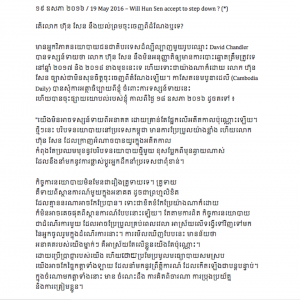
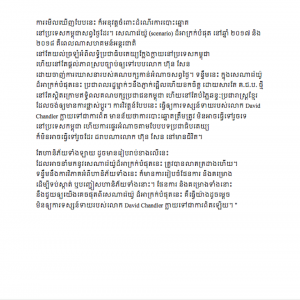
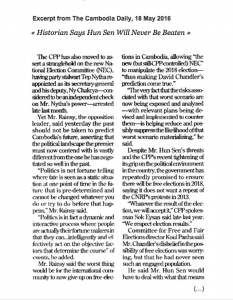
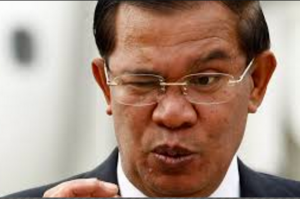
Political Paradigm of Pragmatism from the Khmer Youth part 63

Op-Ed: KhmerOversea.Info
Political Paradigm of Pragmatism from the Khmer Youth part 63
This part (63) aired by CMN on May 01-02, 2016, Mr. Sophan Seng described on the arrest of Ny Chakria, deputy of NEC’s secretary and other 4 Adhoc’s stuffs, and the intervention of ACU on such issues.
Beside of skeptic in abusing of power and out-of-mandate activity of ACU, the detaining, arresting and jailing of Ny Chakria is another step to intimidate NEC from working independently, fearlessly and successfully.











